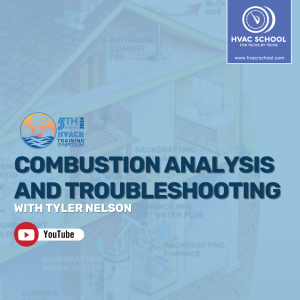BACK
 The Chemistry of Combustion In the Wild
The Chemistry of Combustion In the Wild
 Tool Selection: Combustion Analyzers
Tool Selection: Combustion Analyzers
 Gas Furnaces – What a Tech Needs to Know
Gas Furnaces – What a Tech Needs to Know
 Combustion Air
Combustion Air
 UEI at AHR: Carbon Monoxide Safety and Combustion Analysis
UEI at AHR: Carbon Monoxide Safety and Combustion Analysis
 The Chemistry of Combustion w/ Rachel Kaiser
The Chemistry of Combustion w/ Rachel Kaiser
 Combustion Venting Categories – Short #189
Combustion Venting Categories – Short #189
 Why and How of Combustion Analysis w/ Tyler Nelson
Why and How of Combustion Analysis w/ Tyler Nelson
 Combustion Basics w/ Benoit Mongeau
Combustion Basics w/ Benoit Mongeau
 I’ve Got a Combustion Analyzer, What’s Next?
I’ve Got a Combustion Analyzer, What’s Next?
 Combustion Analysis and Troubleshooting
Combustion Analysis and Troubleshooting
 Combustion Analysis: Easier, Faster, and Better
Combustion Analysis: Easier, Faster, and Better
 The Chemistry of Combustion
The Chemistry of Combustion
#combustion
Tech Tips:

If you’ve been following my writing for the last couple of years, you know that I like to blather on and on about combustion analysis. Now, I am by no means an expert on the subject, as I live in North Texas (which is not known for its intense heating season), but I love using […]
Read more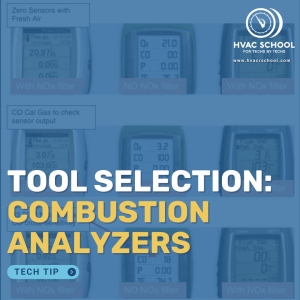
While gauge manifolds and manometers may only have one main function, some tools take several different measurements and will have more expansive specs. The combustion analyzer is one such example—combustion has so many elements, and we need something that can analyze the concentrations of several different substances as well as temperature. As such, a combustion […]
Read more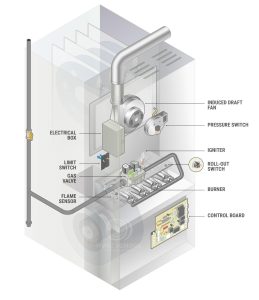
It’s that time of year again—the furnace service calls are peaking. It’s a good idea to crack open Jason Obrzut’s book, Gas Heating: Furnaces, Boilers, Controls, Components, and listen to the many public podcasts and presentations by experts like Jim Bergmann. At HVAC School, we’re fortunate to have had some of the industry’s greatest minds […]
Read more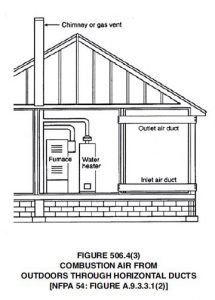
To maintain combustion (burning), you need three things: fuel, heat, and oxygen. If you have all three in the proper proportion, you can maintain a continuous state of combustion. Remove one (or reduce one sufficiently), and the triangle of combustion can collapse. In a common natural gas (NG) furnace, the heat is the igniter, the […]
Read moreVideos:
Podcasts:
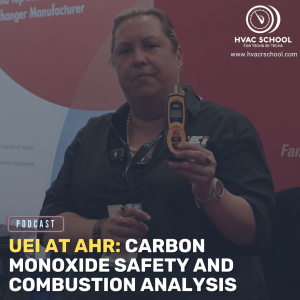
In this informative podcast episode, Bryan from HVAC School is joined by Louise Keller, the National Training Manager for UEI Test Instruments, to discuss the critical importance of carbon monoxide safety and proper combustion analysis. The conversation begins with lighthearted banter about the previous night's Tactical Awards ceremony before diving into the serious topic […]
Read more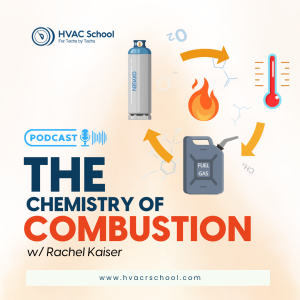
In this episode of the HVAC School Podcast, Bryan interviews Rachel Kaiser, a chemist with a passion for making science more accessible and understandable, especially when it comes to the topic of combustion. Rachel shares her background of how her family's restaurant business sparked her early interest in chemistry and the science behind mixing […]
Read more
In this short podcast episode, Bryan talks about the four different combustion venting categories for gas appliances as set by ASHRAE and where you'll see them. He also shares some notes about pressurization. These categories deal with the pressurization and temperature ranges of the vents. Category 1 venting is used for old-school open-combustion gas […]
Read more
Bryan Orr interviews Tyler Nelson, an HVAC expert with over 20 years of experience as a contractor. They have an in-depth discussion about combustion analysis and why it is becoming increasingly important for HVAC technicians to utilize this process. The conversation provides an overview of combustion analysis benefits and why HVAC pros should incorporate […]
Read more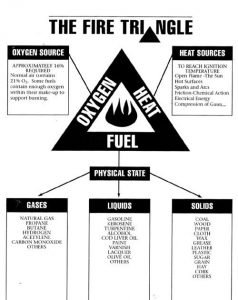
In this episode with BENOÎT MONGEAU, we talk about the components of combustion and what to consider when testing it on a fuel-burning appliance. Combustion requires fuel, oxygen, and a heat source in a correct balance. We call that series of requirements the “combustion triangle.” Once combustion occurs, it is self-sustaining. However, removing one element […]
Read moreEvents:

NOTE: If you cannot view the recording, the video may still be processing. The maximum wait time is 24 hours. We apologize for the delay and appreciate your patience.
Read more
NOTE: If you cannot view the recording, the video may still be processing. The maximum wait time is 24 hours. We apologize for the delay and appreciate your patience.
Read more
NOTE: If you cannot view the recording, the video may still be processing. The maximum wait time is 24 hours. We apologize for the delay and appreciate your patience.
Read more
NOTE: If you cannot view the recording, the video may still be processing. The maximum wait time is 24 hours. We apologize for the delay and appreciate your patience.
Read more
